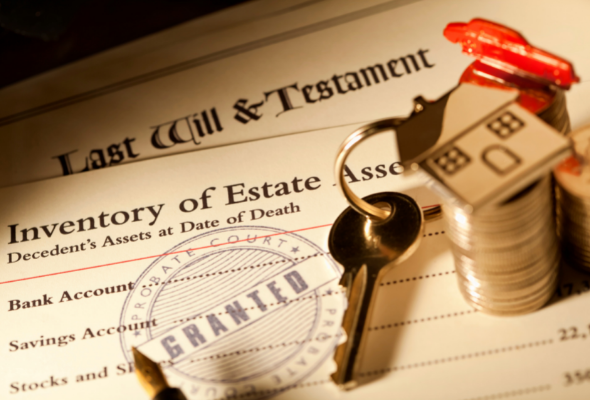Estate Administration and Probate
The need for careful, competent, yet sensitive estate administration services often arises at a difficult time: the loss of a loved one. Our practice has included consultation with many families in a state of grief and loss. During the sensitive time immediately following someone’s death, funeral arrangements must be made, Then, very soon after the funeral, the family has a set of often delicate tasks to wind the deceased person’s affairs. The decedent’ debts have to found and paid, and any pending or existing legal matters have to be addressed.
The family’s initial consultation with an attorney should be approached carefully and with thoughtful consideration. Most people only have to deal with Probate infrequently but have no idea how much they are going to be charged. Due to pricing imbalances, many unqualified attorneys are attracted to this area of the law. The mixture of these two ingredients can lead to hidden fees with long waits to collect estate assets.

Viewed most simply, in the absence of a trust, there are three basic ways property can pass to another person or organization after a death. The three methods include: by operation of law, Estate Administration or Estate Probate. Estate administration is legal process when the assets of the decedent are gathered up and accounted for, and eventually distributed to the heirs of the estate. A special court, the New York Surrogate’s Court, has jurisdiction over probate and estate administration matters.

Some of the decedent’s property, like jointly owned property will pass into the control of others automatically, this is called “by operation of law.” This is simply, but it can result in a great deal of confusion. These assets have to be transferred to the appropriate beneficiaries, and decedents with greater assets may have to pay estate taxes to both the federal and state governments. These types of jointly owned assets are often referred to as “Testamentary Substitutes” (because they are substitutes of your Last Will and Testament, and therefore do not pass by y Will). These accounts or assets may have a named beneficiary, such as a life insurance policy, retirement plan, or Transfer on Death [“TOD”] account, and they tend to be easy to collect once identified, as all that is required to collect them is the decedent’s Death Certificate. Transferring such assets may seem quite straightforward but here are many potential pitfalls. Even what appears to be a simple estate administration can involve issues of who own what, what exactly is owned, and what arrangements have been made.
Perhaps your loved one died without a Will. This brings with it a set of difficulties that can add a burden at an already sensitive time. When there is no Will, the process to settle the decedent’s affairs is called Estate Administration.
If there is a current Will (and we recommend reviewing your Estate Plan every ten years or so) assets pass to others under the legal process known as Estate Probate. This begins with a a careful examination of the Will itself to ascertain whether it is valid or not, who will be in charge of making sure the terms are carried out, as well as who may ultimately receive the assets. Formal probate begins with filing Petition, informing the next of kin and attain their permission to commence the proceeding in court, disclose the nature of those assets to the court, and many other steps.
Assets included in the probate and administration process often include:
- Checking and savings accounts
- Real property (houses, land, condominiums.)
- Tangible assets (jewelry, furniture, collections such as art, coins, stamps.)
- Financial assets, (Mutual funds, bonds, and stocks)
While these classifications seem straight forward, there can be confusion and misunderstanding involving each and every item of property. New York law often provides remedies for such confusion, but establishing the facts in regard to each item often takes time and effort. Sometime, only a portion of the assets is owned, rather than the entire asset, and this has to approached with care and thoroughness.
Normally, assets passing via Probate and Administration will take some time, but and we pride ourselves on keeping our clients informed every step of the way. We represent clients primarily in Westchester County, and clients prefer our law offices for many reasons:
- Personal and professional attention at all times
- Decades of satisfaction and real results for clients
- Effective legal strategies to provides results in a timely, ethical way, and
- Complimentary and confidential consultations to begin the process.
Our
Locations
Allyson J. Lanahan, Esq
Susan Edwards Colson
Let's
Connect


